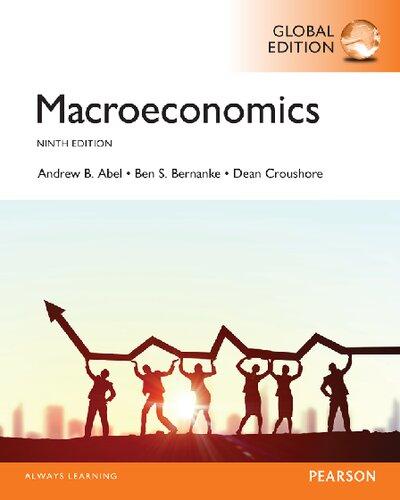Suppose you divide your life into two periodsworking age and retirement age. When you work, you earn
Question:
Suppose you divide your life into two periodsworking age and retirement age. When you work, you earn labor income \(Y\); when retired, you earn no labor income, but must live off your savings and the interest it earns. You save the amount \(S\) while working, earning interest at rate \(r\), so you have \((1+r) S\) to live on when retired. Because you don't need to consume as much when retired, you want to set consumption when working twice as high as consumption when retired.
a. Suppose you earn \(\$ 1\) million over your working life, and the real interest rate for retirement saving is \(50 \%\). How much will you save and how much will you consume in each part of your life?
b. Suppose your current income went up to \(\$ 2\) million when working. Now what will you save and how much will you consume each period?
c. Suppose a social security system will pay you \(25 \%\) of your working income when you are retired. Now, with \(Y=\$ 1\) million, as in part (a), how much will you save and how much will you consume each period?
d. Suppose the interest rate rises, starting from the situation in part (a). Will you save more or less?
Step by Step Answer:

Macroeconomics
ISBN: 9780134167398
9th Edition
Authors: Andrew B. Abel, Ben Bernanke, Dean Croushore





